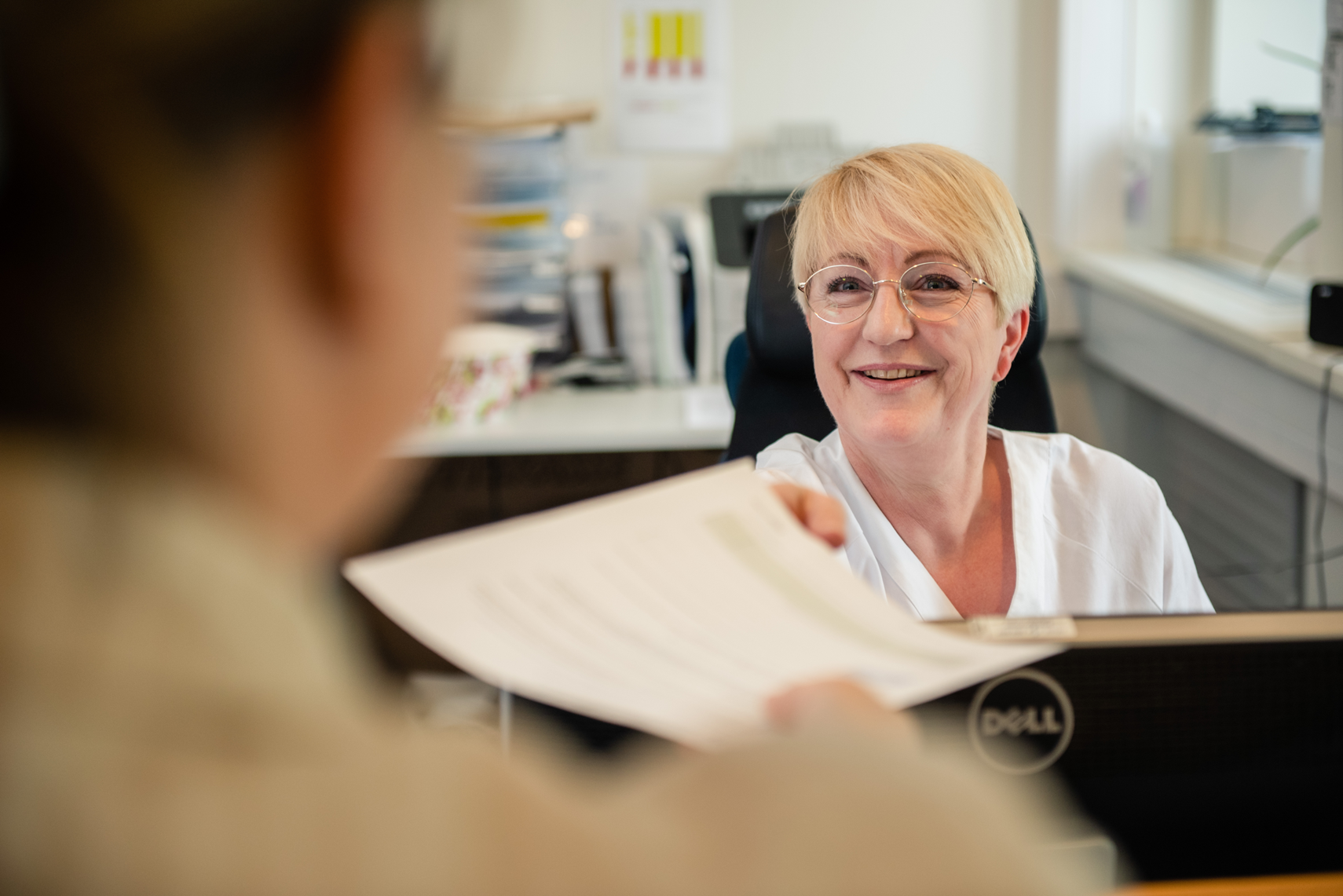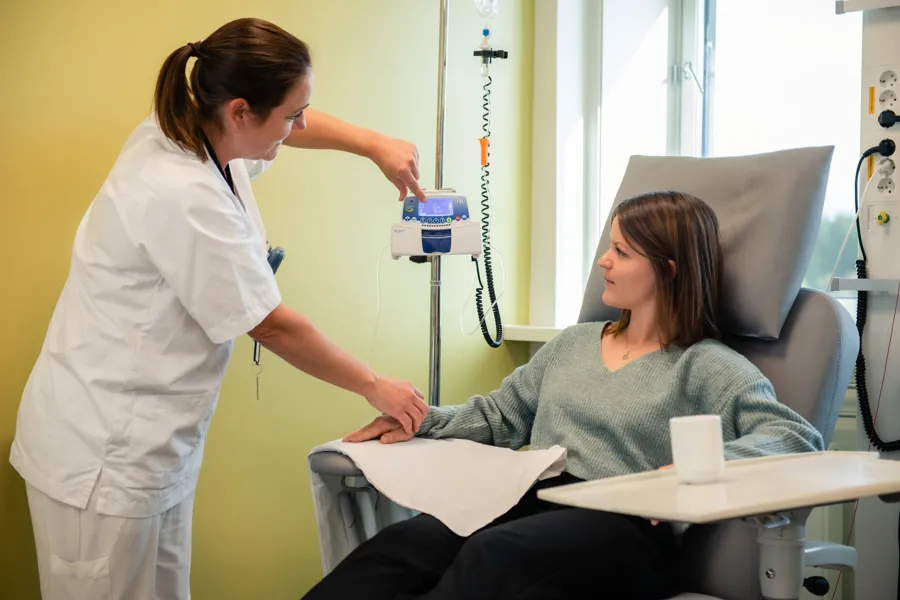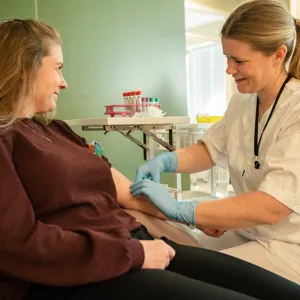Clinical Trials Are Important
Clinical trials generate new knowledge about cancer and its treatment. By participating in clinical trials, patients gain faster access to new treatment methods and contribute to improving future treatment options.
An Option for All Our Patients
Participation and treatment in a clinical trial can be considered for all patients in the oncology department. We have clinical trials for all tumor groups treated at our facility.
Find a Clinical Trial Suited For You (information in Norwegian):

Clinical Trials Are Safe
As a participant in a clinical trial, you will be closely monitored by dedicated healthcare professionals and have a personal contact in the oncology department.
Participation in a clinical trial is voluntary. You can withdraw from the study at any time if you change your mind.
You can read more about participating in a clinical trial in the timeline at the bottom of this page.
Talk to Us About Clinical Trials
Discuss participation in a clinical trial with your treating physician at your next visit. Together, we will find the best treatment option for you.

Patient Pathway in a Clinical Trial
Informed Consent
To help you decide whether to participate, you will receive both verbal and written information about the clinical trial:
- the purpose of the clinical trial
- medications and other treatments you may receive
- examinations you will need to undergo
- what happens to information about you
- what happens to samples taken from you
- possible benefits and risks of participating
- If you wish to participate in the clinical trial, we will obtain your written consent.
You may withdraw your consent at any time if you change your mind.
Screening
To confirm that the clinical trial is suitable for you, you will need to undergo some examinations and tests:
- Physical examination
- Blood tests
- Imaging diagnostics
- Review of medications you are using
- Review of your medical history
If the clinical trial is not suitable for you, we will work together to find the treatment option that best fits your needs. This may be standard treatment according to current guidelines, or a recommendation to participate in another clinical trial at our facility or at another hospital.
Treatment and follow-up
Treatment in a clinical trial may consist of tablets, infusions, or combinations of these.
As long as you are receiving treatment, you will regularly attend check-ups and examinations at the hospital:
- Blood tests
- Physical examinations
- Consultations
- Imaging diagnostics
- Questionnaires
As long as the treatment is effective for you, it will continue. However, if the treatment is not effective, you experience unacceptable side effects, or you no longer wish to continue, the treatment will be discontinued.
Long Term follow-up
Treatment in a clinical trial may be discontinued for several reasons:
- You have completed the treatment
- The treatment is not effective enough for you
- The treatment causes unacceptable side effects
You may change your mind at any time and stop the treatment
Even if you are no longer receiving treatment in the clinical trial, we would still like to know how you are doing. You will not need to attend hospital check-ups as frequently as during the treatment period. Follow-up during this phase may include:
- Blood tests
- Physical examinations
- Consultations
- Imaging diagnostics
- Questionnaires
Over time, the intervals between hospital visits will become longer. Some follow-up appointments may be conducted by phone. You may choose to end your participation in the clinical trial at any time if you change your mind.
If you need further cancer treatment, we will work together to find the option that best suits you. This may be standard treatment according to current guidelines, or a recommendation to participate in another clinical trial at our facility or at another hospital.
